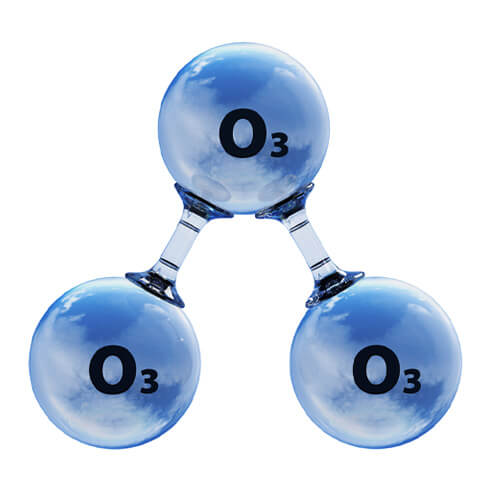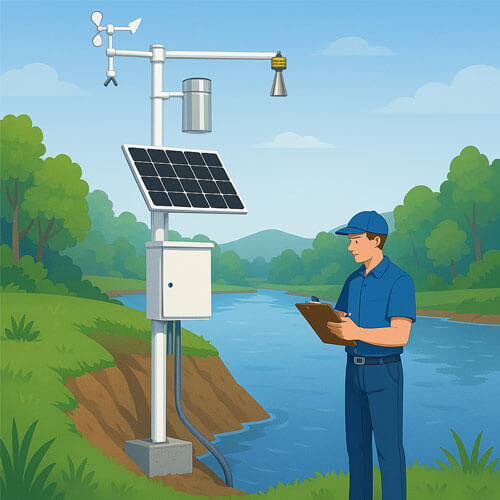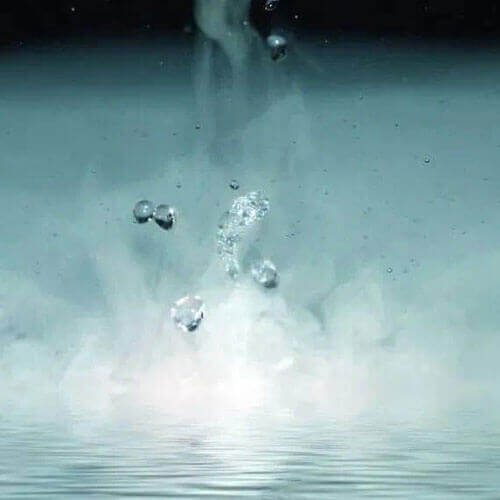We all know that the chemical properties of ozone are extremely active. Its energy when it is free produces strong oxidation in an instant, which can sterilize, disinfect and detoxify. It is widely used in water plant sterilization and disinfection, tableware disinfection, indoor air purification, fruit, and vegetable preservation, there are also medical treatments, etc. But if the concentration of ozone is too high, it will cause great harm to human health. Therefore, whether it is to use the strong oxidizing property of ozone or prevent its harmfulness, it is inseparable from the monitoring of ozone concentration. Ozone meter is the most effective method to detect ozone concentration.
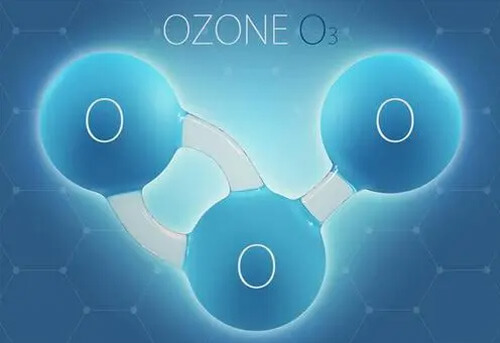
What is an ozone gas sensor?
An ozone sensor is a device that converts information such as the composition and concentration of ozone gas in the environment into information that can be used by personnel, instruments, computers, etc.
Principle of ozone meter
According to different detection principles, ozone meters can generally be divided into three types: ultraviolet, semiconductor, and electrochemistry:
Ultraviolet ozone meter working principle
Studies have shown that the 253.7nm ultraviolet light of ozone has a large absorption coefficient, and the ultraviolet light at this wavelength is attenuated by the ozone, which conforms to the Lambert-Beer law. The ozone gas meter adopts the principle of ultraviolet absorption. It uses a stable ultraviolet light source to generate ultraviolet light. The lightwave filter filters out other wavelengths of ultraviolet light, allowing only 253.7nm ultraviolet light to pass. After passing through the sample photoelectric sensor, it is absorbed by ozone to reach the sampling photoelectric For the sensor, the electrical signals of the sample photoelectric sensor and the sample photoelectric sensor are compared, and the mathematical model calculation is performed according to the Lambert-Beer law to obtain the ozone concentration.
Semiconductor ozone meter working principle
The semiconductor ozone sensor uses gas-sensitive semiconductor materials, such as WO3, Sn0, In203, and other pieces of oxide made of sensitive elements. When they absorb ozone, a redox reaction occurs, which generates or emits heat to make the element The temperature changes accordingly, and the resistance changes. The concentration of ozone is converted into an electrical signal to measure the concentration of ozone. Generally, as the lifted concentration increases, the resistance of the element increases significantly, and within a certain range, the relationship is linear.
Electrochemical ozone meter working principle
The electrochemical ozone sensor is composed of the working electrode, counter electrode, participating electrode, electrolyte, and circuit system. A constant potential value can be maintained between the working electrode and the participating electrode. When ozone diffuses into the sensor, a reduction reaction occurs at the working electrode, an oxidation reaction occurs on the electrode, and a tiny current is formed between the electricity price and the working electrode, and this current enters The ozone concentration of the sensor is proportional to a certain range, and finally processed by the circuit system to calculate the ozone content.
6 types of ozone meters suitable for different places
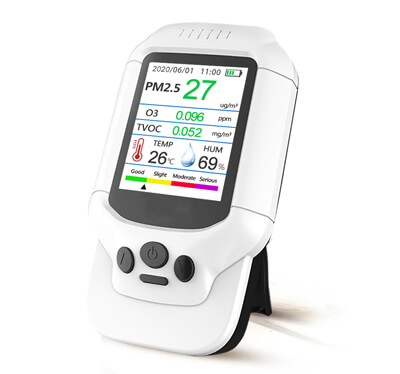
Usually, not only one element is measured for use in the home environment, but several important air quality elements are concentrated on one device for measurement. Just like this DM502-O3 air quality detector, it can not only measure indoor ozone concentration but also measure TVOC, PM2.5, PM10, temperature and humidity at the same time.
This air quality monitor has a built-in fan to quickly draw in ambient air to allow REAL-TIME measurements. It incorporates a laser sensor to measure levels of dust particles and has a second electrochemical semiconductor sensor to measure formaldehyde and natural/synthetic organic compound levels. The air monitor also auto-calibrates.
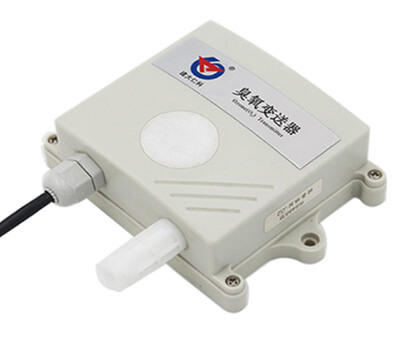
What characteristics should an ozone sensor in an industrial environment have? Of course, the protection level is high, the measurement is sensitive, and remote unified monitoring is possible. This wall-mounted ozone sensor is a typical industrial gas sensor.
This wall-mounted ozone sensor adopts the electrochemical detection principle, by measuring the current generated when the target gas enters the sensor and the chemical reaction occurs at the sensing electrode, so as to achieve the purpose of detecting its concentration. The reaction is rapid and sensitive, and the ozone concentration can be reliably detected. The shell adopts a wall-mounted waterproof shell, which is easy to install and has a high degree of protection; the equipment adopts a high-sensitivity gas detection probe imported from the United States and uses a high-performance signal acquisition circuit, which can accurately measure the ppm ozone concentration, with stable signals and high accuracy. The equipment adopts 485 communication, standard Modbus-RTU communication protocol, communication address, and baud rate can be set, and the farthest communication distance is 2000 meters. The equipment has a 10-30V wide-voltage power supply, and the enclosure has a high degree of protection, which can adapt to various harsh conditions on-site.
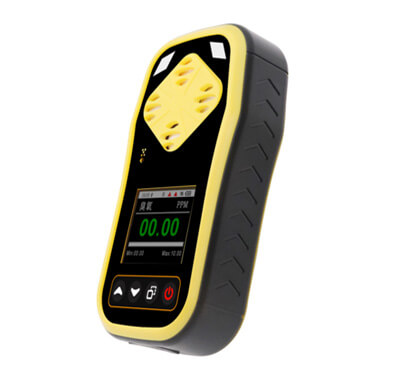
For professional gas safety inspection personnel, a portable ozone detector is essential. There are two types of portable ozone detectors: pumping type and diffusion type, which can be selected according to your needs. The portable ozone detector is designed to safely protect human life. It is small and lightweight and can be easily clipped in a belt, shirt pocket, or helmet to detect the concentration of ozone gas exposed to extreme environments. If the gas concentration of the detector in the air is too high, the ozone detector will send out a triple alarm signal of sound, light, and vibration at the first time, thereby effectively preventing the accident of poisoning caused by the excessive concentration of ozone gas in the air.
RS-MG41-O3 ozone gas detector is an intrinsically safe gas detector developed by our company for the environment containing ozone gas. The detector adopts the natural diffusion method to detect gas, adopts an electrochemical gas sensor, and has excellent sensitivity. And excellent repeatability. The product can store up to 100,000 test data and can view historical data at any time with the software. High-definition color screen design, easy to view the gas status, can set high and low alarm values. Shortcut keys to quickly turn on and off the sound alarm and storage mode. Hand-held design, the large-capacity battery is convenient to use, and the device can last for at least 8 hours in constant light mode.
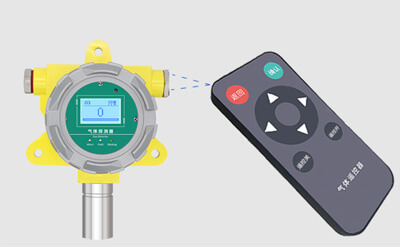
The fixed ozone meter is used for 24-hour online monitoring of the gas concentration in the environment or pipelines and alarms. On-site display of concentration and sound and light alarm, remote data transmission. This is a detector that is used more in industrial equipment and in the production process. It can be installed at a specific detection point to detect specific gas leaks. When in use, it should be selected according to the type and concentration of the gas on-site, and at the same time, attention should be paid to installing them in the most likely leaking part of the specific gas. For example, the most effective height of the sensor should be selected according to the specific gravity of the gas.
The fixed ozone meter is composed of a gas detection alarm controller and a fixed ozone detector. The gas detection alarm controller can be placed in the working room to monitor and control each monitoring point. The ozone detector is installed in the place where the gas is most likely to leak. , The core component is the gas sensor. Fixed ozone detection alarms are widely used in petroleum, chemical, metallurgical, electric power, coal, tap water, and other environments, and play an important role in natural gas protection.
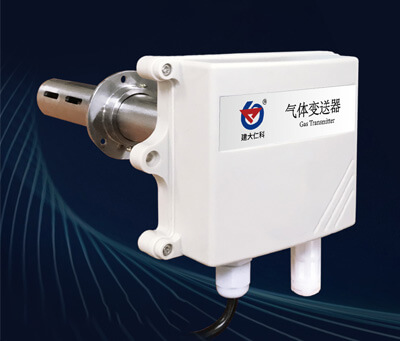
The duct-mounted ozone meter is specially designed for plug-in pipeline gas measurement. It adopts a plug-in structure combining a stainless steel air duct and a stainless steel flange, and a professional ozone concentration sensor probe is used as the core detection device. The transmitter adopts electrochemical technology for O3 concentration measurement, and the response is rapid and sensitive, and the ozone concentration can be reliably detected. The transmitter is professionally used in pipeline ozone concentration measurement. The equipment adopts waterproof housing design, pipeline installation method, convenient on-site installation, and anti-interference circuit design, which can withstand various strong electromagnetic interferences such as on-site inverters.
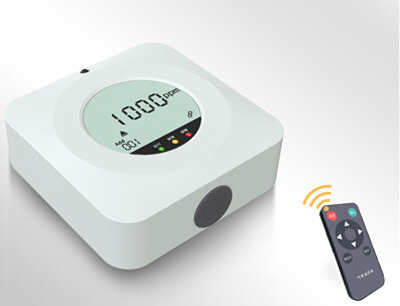
This smart ozone meter has an exquisite appearance, a remote control function, and data transmission through the Modbus protocol. The indoor installation is simple and beautiful. This smart gas detector is an environmental gas concentration monitor independently developed by our company. It is used to detect the gas concentration parameters in the air environment. When the concentration exceeds the preset alarm value, it will send out an audible and visual alarm signal to remind the user in time Take safety measures to prevent explosions and poisoning accidents, to protect the safety of life and property. The transmitter adopts a first-line electrochemical sensor of a major brand, which has the characteristics of rapid response and strong anti-interference ability. After our unique compensation algorithm, multi-stage standard gas calibration, it also has a long life, high precision, high repeatability, and Features of high stability, with a large-screen LCD display.
How to choose an ozone meter?
When purchasing an ozone meter, you must first clarify the characteristics of the use environment and the purpose of use, and select it based on the stability, sensitivity, selectivity, and corrosion resistance of the ozone monitoring equipment.
1. Stability refers to the stability of the basic response of the sensor during the entire working time, which depends on the zero drift and interval drift. Zero drift refers to the change in sensor output response during the entire working time when there is no ozone. Interval drift refers to the output response change of the sensor continuously placed in ozone, which is manifested as the decrease of the sensor output signal during the working time. Ideally, for a sensor under continuous working conditions, the annual zero drift is less than 10%.
2. Sensitivity refers to the ratio of the sensor output change to the measured input change, which mainly depends on the technology used in the sensor structure. The design principles of most gas sensors use biochemistry, electrochemistry, physics, and optics. The first thing to consider is to select a sensitive technology that has sufficient sensitivity for the detection of the target gas’s valve limit (TLV-threshold limit value) or the lowest explosive limit (LEL-lower explosive limit) percentage.
3. Selectivity is also called cross-sensitivity. It can be determined by measuring the sensor response produced by a certain concentration of interfering gas. This response is equivalent to the sensor response produced by a certain concentration of ozone. This characteristic is very important in the application of tracking multiple gases because cross-sensitivity will reduce the repeatability and reliability of the measurement. The ideal sensor should have high sensitivity and high selectivity.
4. Corrosion resistance refers to the ability of the sensor to be exposed to a high volume fraction of target gas. When a large number of gas leaks, the probe should be able to withstand 10-20 times the expected gas volume fraction. Under normal working conditions, the sensor drift and zero-point correction value should be as small as possible.

